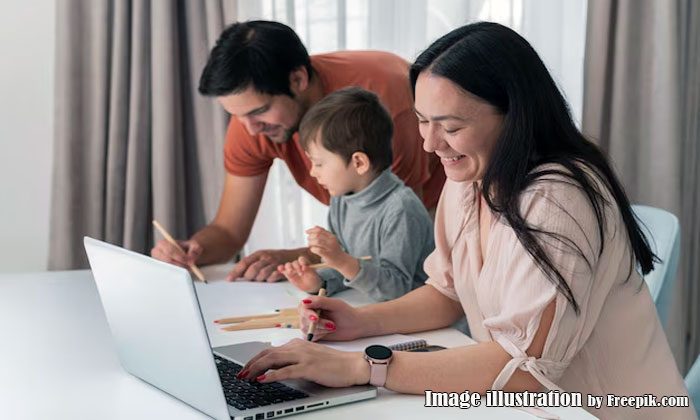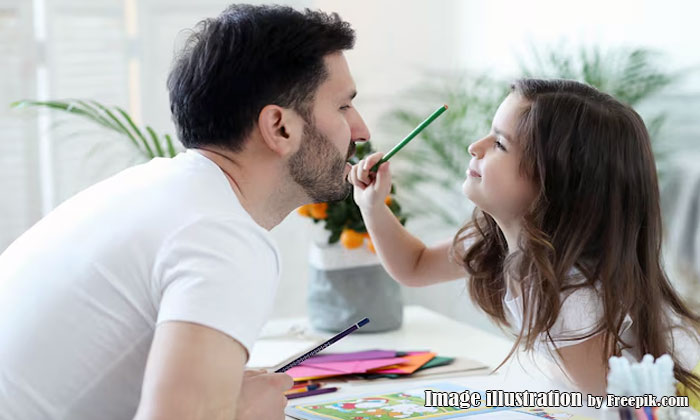
In modern parenting, the role of fathers has evolved significantly over the years. Traditionally, fathers were often seen as the primary breadwinners and disciplinarians, while mothers took on the nurturing and caregiving responsibilities. However, as societal norms have shifted, fathers are now more involved than ever in raising their children, with an increased focus on emotional support, caregiving, and shared parenting responsibilities. The modern father plays a multifaceted role in a child’s life, and his involvement has a profound impact on his child’s development, well-being, and overall family dynamics.
This article explores the important and evolving role of fathers in modern parenting and highlights how they contribute to the emotional, psychological, and developmental growth of their children.
1. Emotional and Social Support
Historically, fathers were often seen as the “strong” figure in the family, less involved in emotional support or the daily nurturing of their children. Today, however, fathers are increasingly recognized as vital sources of emotional support. Their involvement in day-to-day care not only strengthens the father-child bond but also teaches children essential social and emotional skills.
- Modeling Emotional Expression: Fathers are increasingly encouraged to express their emotions openly and healthily, which can help their children understand and regulate their own feelings. By demonstrating empathy, vulnerability, and self-awareness, fathers teach their children that it’s okay to have and express emotions, regardless of gender.
- Active Listening: Modern fathers are more attuned to their children’s emotional needs. They listen attentively when their child shares something important, offering empathy and guidance without rushing to solve the problem. This helps children feel heard and validated, which is crucial for their emotional development.
- Building Social Skills: Fathers often play a key role in teaching social skills, such as how to form friendships, resolve conflicts, and navigate the world of peer relationships. Whether it’s through play, everyday conversations, or family activities, fathers help children develop the social competencies that will serve them well throughout their lives.
2. Equal Parenting Partnership
In modern families, there is a growing emphasis on co-parenting and shared responsibilities. Fathers are no longer expected to only provide financial support, but also to engage equally in child-rearing duties, including feeding, bathing, and helping with homework. This shared responsibility fosters stronger family bonds and ensures that both parents contribute to the nurturing and development of their child.
- Collaborative Parenting: A father’s role in modern parenting is often one of partnership. Both parents are equally responsible for ensuring that the child’s needs—physical, emotional, and intellectual—are met. This collaborative approach provides children with a balanced and supportive environment.
- Breaking Stereotypes: As fathers engage in caregiving tasks, they help break down traditional gender roles. Children who see their fathers involved in cooking meals, attending school events, or providing emotional support learn that parenting is a shared responsibility, regardless of gender.
- Work-Life Balance: Modern fathers are also striving to balance their careers with family life. Many fathers are now more actively involved in parenting by taking paternity leave, adjusting their work schedules to spend time with their children, and prioritizing family time.
3. Positive Role Model
Fathers are important role models for their children, shaping their ideas about relationships, self-worth, and personal values. A father’s influence can deeply impact a child’s confidence, self-esteem, and future relationships.
- Setting Examples for Boys and Girls: Fathers are vital role models for both sons and daughters. For sons, fathers often set the standard for how to treat others with respect, work hard, and handle challenges. For daughters, fathers can shape their expectations for how they should be treated by others and what they should expect from romantic relationships. A father who demonstrates respect for women, equality, and emotional intelligence provides an example that will last a lifetime.
- Teaching Life Skills: Fathers often take on the role of teaching practical life skills, such as how to handle finances, how to build and maintain relationships, or how to work through difficulties. Whether it’s teaching how to fix a bike, manage money, or approach a problem, fathers can impart lessons that help their children navigate adulthood.
- Instilling Values: Fathers have a unique opportunity to impart important values such as integrity, responsibility, and empathy. Through conversations, actions, and decisions, fathers help to shape their children’s character and outlook on life.
4. Involved Fatherhood and Child Development
Research has shown that children with involved fathers tend to experience better emotional, cognitive, and social outcomes. Active father involvement contributes significantly to the development of a child’s confidence, academic achievement, and even mental health.
- Cognitive Development: Fathers who engage in activities such as reading with their children, discussing ideas, or playing educational games help stimulate cognitive development. These interactions provide a foundation for critical thinking, problem-solving, and intellectual curiosity.
- Boosting Confidence: Children who receive support and encouragement from both parents tend to have higher self-esteem. A father who is involved in their education, hobbies, and personal achievements provides positive reinforcement that boosts a child’s confidence and belief in their abilities.
- Behavioral and Social Outcomes: Fathers who are actively involved in their children’s lives often help to improve their behavior. Research suggests that children with involved fathers exhibit fewer behavioral problems, perform better academically, and are less likely to engage in risky behaviors during adolescence.
Also read other parenting articles on Destyless:
- How to Encourage Independence in Your Child
- Parenting Teens: Navigating the Adolescent Years
- Managing Screen Time: A Guide for Parents
5. Physical and Recreational Activities
One of the most well-known aspects of modern fatherhood is the role fathers play in physical activities and recreation. Whether it’s playing sports, taking family walks, or simply engaging in active play, fathers often introduce their children to the joys of physical activity.
- Promoting Healthy Lifestyles: Fathers are instrumental in fostering healthy lifestyles by encouraging physical activity, teaching sports, or participating in outdoor adventures. Physical activity not only supports physical health but also promotes mental well-being, boosts mood, and strengthens family bonds.
- Building Confidence Through Play: Fathers who engage in physical play with their children—whether it’s playing catch, riding bikes, or having fun at the park—help to build their children’s self-confidence and social skills. These activities teach children how to cooperate, share, and engage in healthy competition.
- Quality Time and Bonding: Recreation and play provide fathers with opportunities to bond with their children in a relaxed and enjoyable setting. These shared experiences help to strengthen the father-child relationship, leading to lasting memories and a deeper emotional connection.
6. Supporting a Child’s Interests and Aspirations
In modern parenting, fathers are more attuned to their children’s unique interests and aspirations, providing them with the support and encouragement they need to pursue their passions.
- Encouraging Hobbies and Interests: Whether a child is interested in music, sports, art, or academics, fathers can be pivotal in fostering these interests by providing resources, offering guidance, and participating in their child’s activities. By showing genuine interest and enthusiasm in their child’s pursuits, fathers help cultivate a sense of pride and motivation in their children.
- Empowering the Next Generation: Modern fathers also support their children’s educational goals and future ambitions. This can involve helping with homework, attending school events, discussing career options, or simply providing encouragement. By showing interest in their children’s future, fathers give them the confidence to reach for their goals and believe in their potential.
7. Being Present and Available
Above all, the role of a father in modern parenting is about being present. Fathers who make an effort to be emotionally available and involved in their children’s lives help create a strong sense of security and attachment.
- Quality Time: Fathers who spend quality time with their children—whether through conversation, family activities, or simply being available for support—help strengthen the emotional bond between parent and child. The sense of security and love that a father provides is crucial for a child’s emotional well-being.
- Availability and Support: Being present doesn’t just mean physical presence—it also means being emotionally available. Fathers who engage in meaningful conversations, show up to important events, and offer guidance when needed create a foundation of trust and love that helps children thrive.
Conclusion
The role of a father in modern parenting is complex, dynamic, and incredibly important. Fathers today are more involved than ever in nurturing, guiding, and raising their children. From providing emotional support to modeling healthy relationships, from encouraging independence to participating in recreational activities, fathers play a crucial role in shaping their children’s lives. As society continues to evolve, the modern father will continue to be a central figure in the well-being and development of the next generation.






